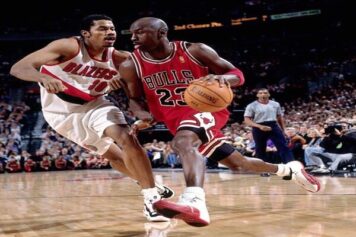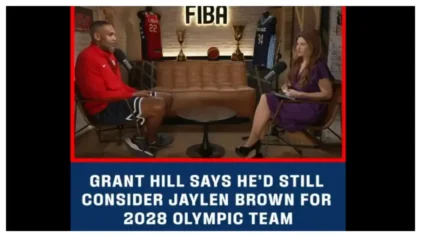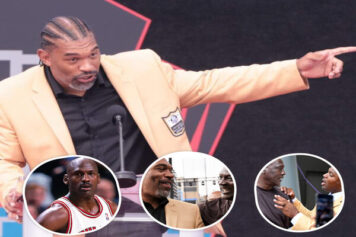We all have our space and time on this earth and depending on opportunities either afforded or grasped through determined excellence, our ability streamlined within our upbringing shows society our path and inspires those seeking a legacy to be remembered whether that is our intention or otherwise.
In a perfect world, everyone is privy to become this example whether brought into existence wealthy, poor or middle class. Unfortunately, too many once in a lifetime teachers of men never get the shot to advance thought and evolve any relevant cultural aspect into an influential social paradigm. Through sports, our nuanced differences develop into history explaining much more than the final score of competition and it is that history bridging our differences into a collective spirit feeding the next best; Athletic and spiritual food that puts the future in a position to capitalize on hard work and be in the right place at the right time.
Born of Southside Chicago fire, Mike Krzyzewski is one of the current icons of sport representing where he is from…and college basketball, as well as sports in general, is the beneficiary.
When Coach K took over for Bill Foster and went 17-13 in 1980-81, the hard work of Cap Card in 1905 at Trinity College began to pay off at what is now Duke University.
The day is March 31, 1986, and visiting my grandparents in Chester, PA I settled in with the fam to watch the National Final between the favored Duke Blue Devils and the 2nd seeded Louisville Cardinals. It was the 63rd game in the tournament and played in Dallas, Texas that year. The Championship was the first ever to use a 45 second shot clock and featured Billy Thompson and Milt Wagner from Louisville and 1st team All-American Johnny Dawkins, as well as Mark Alarie and Tommy Amaker from Duke. Denny Crum was looking for his second NCAA title and a 39 year old Mike Krzyzewski, the opportunity to showcase the Blue Devils as an impending force in college basketball. Ultimately, the game was won by Louisville 72-69, became freshman Pervis Ellison’s party and “Never Nervous” Pervis stamped his name on history by becoming an unlikely MOP of the tournament. Think of how that performance forever affects his family and Louisville Cardinal Nation.
My grandmother would yell down to the basement “There’s colored people on the Price is Right!” (because black folk rarely appeared on the show) on days my sister and I were off from school, so of course the family was cheering for Louisville since Billy Thompson and Milt Wagner were from nearby Camden, New Jersey (as an aside, what was personally most notable about that season in general was Len Bias fast becoming the best young player I’d ever seen).
What I took from this game in the aftermath was the expressions of Coach K and how passionate he was in creating a go-for-the-juggler atmosphere his players thrived in that also built his program.
In the next three decades Coach K won 4 National Titles, appeared in 11 Final Fours, won 12 ACC regular season titles, and 13 conference tourney championships. He also won two gold medals in 2008 and 2012 as head coach of USA Basketball (assistant in 1992 for the Dream Team) and won the gold medal at the 2010 FIBA World Championship.
Before the 2008 Olympics, I asked Coach K about coaching from the pantheon and how he simplifies the coaching moments mentally during USA Basketball competition. He was modest in his response: “Oh I don’t know. I don’t know if anyone sees me…I want to be a coach and I’m just the coach of this United States team that has an incredible opportunity to do the most important assignment I’ve had as a coach. This is an amazing honor for me to this and to do it with this caliber of players.”
He is the coach most affected by early exits to the pros because of an ability to secure elite high school talent just walking in the door and enjoying a home cooked meal made by blue chip families during the recruiting process. He built the program with his kids buying into what Duke is all about in an academic as well as an athletic sense, and when those athletes leave before they are seniors, everyone involved at Duke is affected.
Though he won the 2010 title with Nolan Smith, Jon Scheyer and Kyle Singler leading the Blue Devils as upperclassmen, his teams haven’t reached a Final Four since. He is a coach whose success is synched with players he grooms on the college level. Now that one-and-done players litter the college landscape, his model has been chased down and co-opted by smaller schools who are ultimating having considerable success in March. Think Butler and most other mid-majors following Coach K’s model that are viewed more as academic institutions than athletic powerhouses. As the years progress, Coach K will have to get back to the days of recruiting his type of athlete in a Jay Bilas, Danny Ferry and Christian Laettner mode. Talented speedy guards like Bobby Hurley and Cris Collins that aren’t as attractive to pro scouts as early as say a William Avery, Kyrie Irving or even the player that put his program on another level, Johnny Dawkins.
He needs four year players committed to Duke in the classroom as well as the hardwood to continue to win championships…unless he adapts.
What if Kobe Bryant went to Duke and stayed 4 years? How would we view college basketball? What would be the legacy of men choosing to attend college instead of shooting the gift straight to the pros? Coach Krzyzewski is the last one of his kind. He is the last coach to stand in front of the door like an accidental bouncer and prohibit young hoops gems from seeking a world no longer naïve of itself.
Jabari Parker you are the next nominee. Will you stay after not having the type of success you assumed you would at Duke – early on – or will you bolt for the dough and the TV fame? Parker will be fine regardless of his choice, but will Duke be able to say the same?
Is this simply about how playing at Duke affects athletes individually or is it all about Duke itself? How should we view kids looking to get to the next level as soon as possible? Are they bad kids for leaving? If so, why when so many in so many other sports do the same without scrutiny.
Speaking to Elton Brand in 2010, he spoke of why he chose Duke: “I went to a camp and I was ranked 200th, so I always had to outwork my opponent to get better. The NBA wasn’t guaranteed to me so I felt as though Duke, with the academics that they have, would enable me to get a great job at Morgan Stanley or something like that so I could help my Mother out and get her a nice house. That was my goal. I might not make it to the NBA but I’ll have a great education, get up at 5:30 am and go to work somewhere and get a nice salary. So I figured Duke with basketball and academia, I’ll be good there.”
He continued and spoke very highly of Coach K and how his Duke coach reacted to his choice to leave after 2 years: “Coach K is all about family. Family and being together. He’s tough as nails you know. He was also all about respect and being under his tutelage for those two years really helped me out. He’s a man’s man. It was tough with his Army background but he pushed us and definitely pushed me as a player. He pushed my teammates and I to be our best on and off the floor. It was a tough decision (leaving). Coach K was right there along with my decision. He knew my background financially and things like that. During the season he said “Hey, we’re gonna do this thing right.” He told me I was gonna be on the cover of magazines and player of the year…which I was. The same with the Wooden Award and the Naismith Award and all that. He said I was going to be a top three pick. He said it’s OK, I understand your situation. College is pure. I left a lot of fun there. It was more a business decision. Now my son or daughter (not yet) won’t have to make the same decisions I made.”
Bobby Knight, during Coach K’s Hall of Fame enshrinement says this: “What Mike has done with his basketball team is show – I think better than anybody that’s ever coached the game of basketball – that good can win; Students that really represent their university on and off the court well can win. I think that his teams, in terms of how they go about playing the game, are a model for every team that plays basketball on any level in the United States. That’s not the what that Mike has accomplished, that’s how he has accomplished it. I think he’s just ahead of anybody else coaching in terms of all of the things that are important that go in to making a winning basketball team.”
Gerald Henderson speaks of his time with Coach K and seeing him in a similar lens to Michael Jordan:
“You learn so much about him being around him. He’s got a lot of fire for the game of basketball. His attention to detail and the work he puts in daily is unmatched. Coach K is such a special man and you learn a lot of things other than basketball from him too. He really is what people expect him to be. They’re very similar in many ways…their passion for the game. Their attention to detail.”
During Duke’s heyday in the 90’s within that attention to detail, the Blue Devils became the most compelling team on the college level. It wasn’t just about the rivalry with North Carolina or his presumed squeaky clean program, but more how fans of the sport saw Duke as entitled. Fans saw Duke as winning games they shouldn’t have won or getting calls in critical March Madness spots where legacies lay in the balance for a season or for time. How does such a perception affect someone as great as Coach Mike Krzyzewski? How does he deal with the nation seeing his program as simply an institution stroking what the mainstream has to offer?
I asked Jalen Rose after the very critical view of Duke and Grant Hill in the outstanding Fab Five documentary to clarify his remarks: “I clearly stated in the documentary I was jealous of how Grant Hill was raised…how I felt he had a quality family, went to a fantastic school and he represented what Dick Vitale said we didn’t in the documentary. People that represented…in his words…the clean cut all American kind of guy. Also we were his opponent. We weren’t his teammates. He wasn’t somebody I was standing next to in the restaurant and chose to knock a chip of his shoulder. We were two dogs going for the same bone. At the time, I knew society gave him a leg up. At the time, how do you respond? Do you use it as fuel to the fire to put me in the position where I am today? Or do you go by the early 90′s mentality where at the time we were still going back to the dorm room to listen to the answering machine to see where the party was that night and we were still talking about if there would be a Black president ever. Times have changed. Do I feel that way now? Of course not! The way he (Grant Hill) was raised? That’s what I’m trying to provide for my kids. The way he was raised? That’s the polish. That’s the substance that I want the students of Jalen Rose Leadership Academy to have when they graduate from high school. I want them to be fueled like he was, not like I was.”
Do you understand what Jalen is saying? He’s articulating that just because you attend Duke, it doesn’t entitle you to anything a kid from the inner city isn’t entitled to having. Kids from a lesser fortunate background should aspire to attend such a great institution as Duke University, but does that opportunity exist? Many would say no and that is why Duke is viewed at times as a bastion of white supremacy and whether that is real, it is what it is. The controversial win vs. UNLV in the Final Four is Exhibit A. Does Coach K and his school represent a past the sport no longer needs to market and support itself as kids basically become corporations themselves? Possibly, but no one can deny the fire he employs to get his kids to the pinnacle of sport as well as life. His players are basketball analysts, coaches, GM’s and successful businessmen in every measure of society.
Coach K does look mean as hell at times on the sideline and does a competitive sense because of the aforementioned perception move him so much he wants to destroy anyone in front of him as say a Michael Jordan exploited when he needed an inspiration from somewhere…anywhere?
The Army Cadet with 983 wins could surpass the 1,000 win mark in 2015. Within that number, what do you think of him outside of his impenetrable coaching legacy? Like the greatness of John Wooden as the Wizard of Westwood, are we currently witnessing the greatest coaching mind sports has ever seen? That's quite possible and belive it that he's definitely in the discussion.
Regardless of what anyone including myself thinks, what can’t be denied is that Mike Krzyzewski is a winner for now and also for history.



